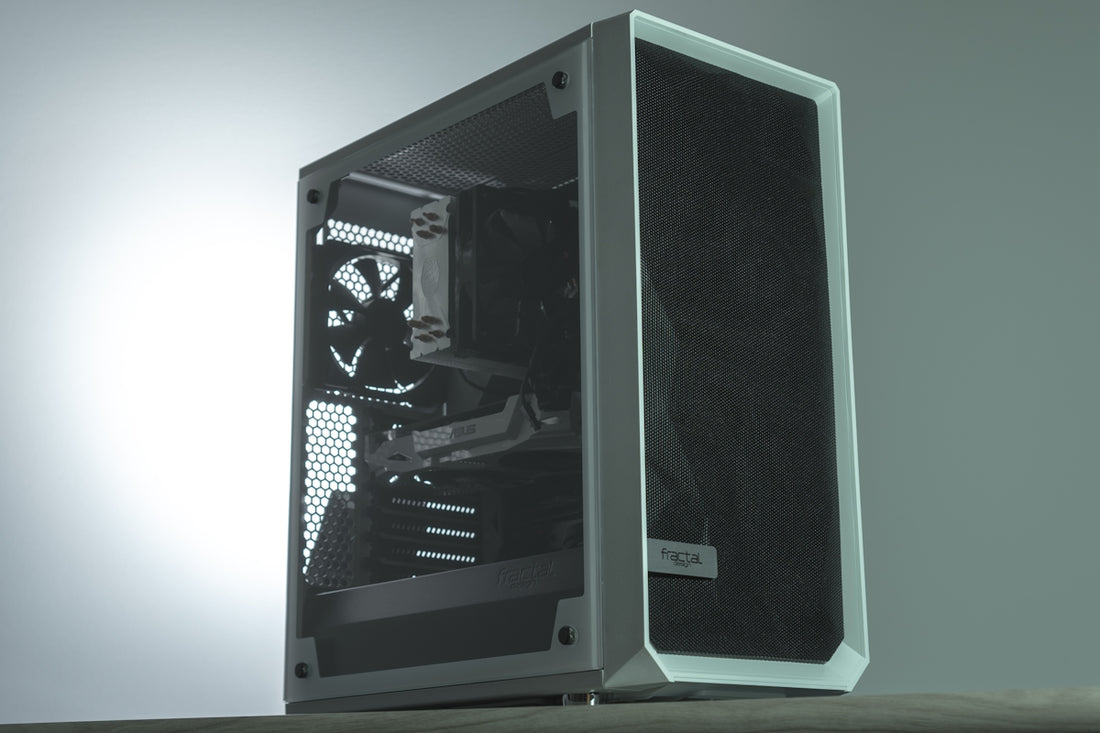
The Role of SSDs in Gaming: Speed Versus Capacity Explained
Share
In recent years, the gaming world has undergone a significant transformation, largely due to advancements in hardware technology. One of the standout developments is the emergence and widespread adoption of Solid State Drives (SSDs). As gamers seek faster load times, smoother gameplay, and larger storage options, the perennial debate of speed versus capacity continues to shape decision-making processes. Understanding the role of SSDs in gaming is crucial for anyone looking to optimize their gaming experience. Let's explore the speed and capacity dynamics of SSDs and how they impact your gaming universe.
What Are SSDs?
Solid State Drives (SSDs) are storage devices that use NAND-based flash memory to read and write data. Unlike traditional Hard Disk Drives (HDDs) that use spinning disks and mechanical parts to access information, SSDs have no moving parts. This difference in technology significantly improves their performance in terms of speed and reliability.
Speed: How SSDs Transform Gaming
When it comes to gaming, speed is a crucial factor. Long loading times and lag can be frustrating, especially for gamers who seek a seamless and immersive experience. SSDs offer the speed advantage by reducing the time it takes to boot up games and load levels or maps. This improvement is not just about convenience; it also contributes to a smoother and more immersive gaming experience.
Faster Load Times
The difference in load times between SSDs and HDDs is particularly noticeable in gaming. For example, loading a game like "Dark Secrets of Africa" Dark Secrets of Africa Microsoft Windows PC CD on an SSD can drastically shorten the wait time, allowing gamers to jump into the action almost instantly.
Improved Game Responsiveness
In games that require quick reflexes and precision, such as "Richard Burns Rally" Richard Burns Rally Microsoft Windows PC CD, an SSD can deliver more responsive gameplay. The faster read and write speeds ensure that gameplay data is accessed and processed swiftly, minimizing lag and enhancing the overall experience.
Seamless Game Updates
For many modern games, regular updates are a part of the experience. These updates can include bug fixes, new content, or performance enhancements. The speed of SSDs allows for quicker installation of these updates, ensuring that gamers spend more time playing than waiting.
Capacity: The Other Side of the Coin
While the speed of SSDs is a significant benefit, capacity is another critical aspect to consider. Games are becoming larger and more detailed, often requiring substantial storage space. Balancing the need for speed and the demand for capacity is essential for gamers who want to maintain a vast library of playable titles.
Storage Challenges
As gaming technology advances, so does the size of game files. High-resolution graphics, expansive open worlds, and intricate gameplay mechanics contribute to this increase in size. For example, classic games like "Pearl Harbor Attack Attack" Pearl Harbor Attack Attack Microsoft Windows PC CD might not pose significant storage challenges, but newer games can quickly consume the available storage on an SSD.
SSD vs. HDD Capacity
Traditional HDDs often boast larger storage capacities at a lower cost, making them appealing for gamers who require extensive storage. However, the trade-off is slower performance. On the other hand, SSDs, while more expensive per gigabyte, offer unbeatable speed and a more reliable performance.
Strategies for Balancing Speed and Capacity
Gamers looking to harness the benefits of both speed and capacity can opt for a hybrid storage solution. This approach involves using an SSD for frequently played games and essential software, ensuring quick load times and responsiveness, while using an HDD for less frequently accessed data and large game libraries.
Dual-Drive Setup
A dual-drive setup taps into the strengths of both SSDs and HDDs. By installing an SSD as the primary drive for your operating system and high-priority games, and using an HDD for additional storage, gamers can enjoy the best of both worlds. This setup allows games like "LucasArts Star Wars Jedi Knight Jedi Academy" LucasArts Star Wars Jedi Knight Jedi Academy Disc 1-2 Microsoft Windows PC CD to load quickly while preserving ample space for other data.
SSD Upgrades
Advancements in SSD technology continue to reduce the price difference between SSDs and HDDs. Larger SSDs are becoming more accessible, providing greater capacity without sacrificing speed. Upgrading to a higher-capacity SSD can future-proof your gaming setup, accommodating larger games and updates without compromising on performance.
The Future of Gaming Storage
As both gaming and storage technologies evolve, it's clear that SSDs will continue to play a pivotal role in enhancing the gaming experience. Game developers are increasingly optimizing their titles for SSDs, ensuring that gamers can leverage the full potential of their hardware. Furthermore, innovations such as NVMe SSDs offer even faster speeds, pushing the boundaries of what's possible in gaming.
Conclusion
Ultimately, the choice between speed and capacity comes down to individual gaming preferences and needs. For those prioritizing speed, SSDs provide a noticeable advantage in load times, game responsiveness, and overall performance. However, if you require massive storage for a vast collection of games, a modern HDD, or a combination of SSDs and HDDs, might be the way to go.
For more insights and an extensive range of gaming products, check out PCGamezUSA. Whether you're a casual gamer or a dedicated enthusiast, understanding the role of SSDs can help you make informed decisions that align with your gaming lifestyle. Embrace the speed, accommodate the capacity, and elevate your gaming experience to new heights!




